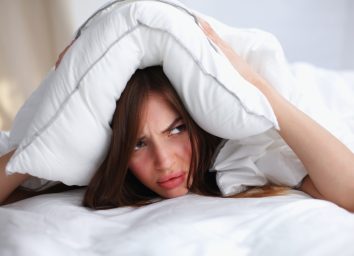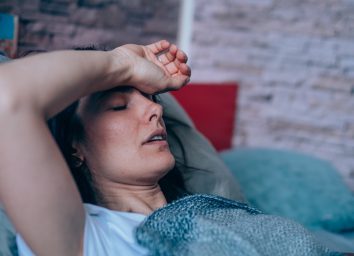This Sleep Habit Doubles the Risk of Early Death in Women, Says Study
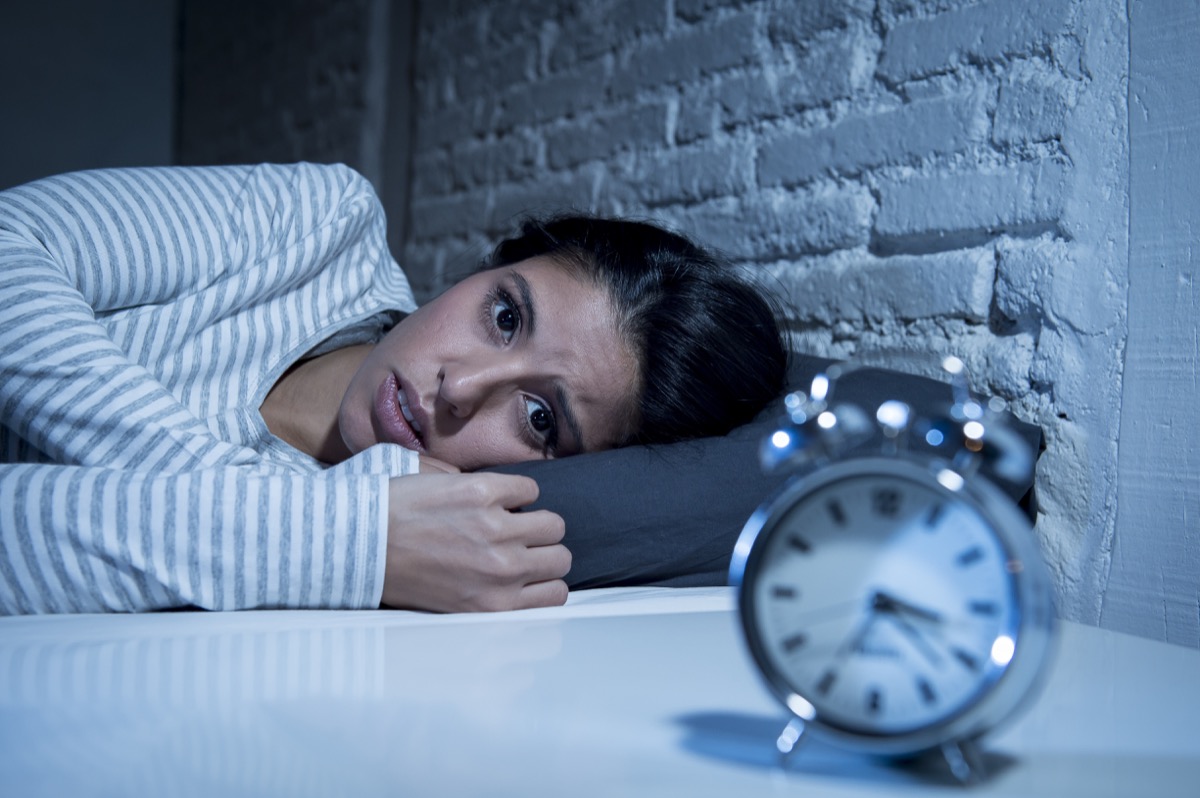
It’s simply a fact that many of us often wake up in the middle of the night and don’t even know it. It’s called unconscious wakefulness—or “cortical arousal”—and it refers to the moments during your slumber when a noise or another stimulus disturbs our rest, causing our bodies to be momentarily alert out of stress or fear, even if we’re still in a restful state.
“It occurs spontaneously and is part of the body’s ability to respond to potentially dangerous situations, such as noise or breathing becoming obstructed,” explains a big new study published this week in The European Heart Journal. “Pain, limb movements, trauma, temperature and light can also be triggers.”
According to the study, there is a link between unconscious wakefulness and heightened risk of death “from diseases of the heart and blood vessels, and death from any cause, particularly in women.” Read on for more about this study and for what it means for you. And for more ways to sleep better every night, make sure you’re aware of The Single Best Trick for Falling Back Asleep After Waking Up During the Night, Say Psychologists.
The Common Causes of Unconscious Wakefulness
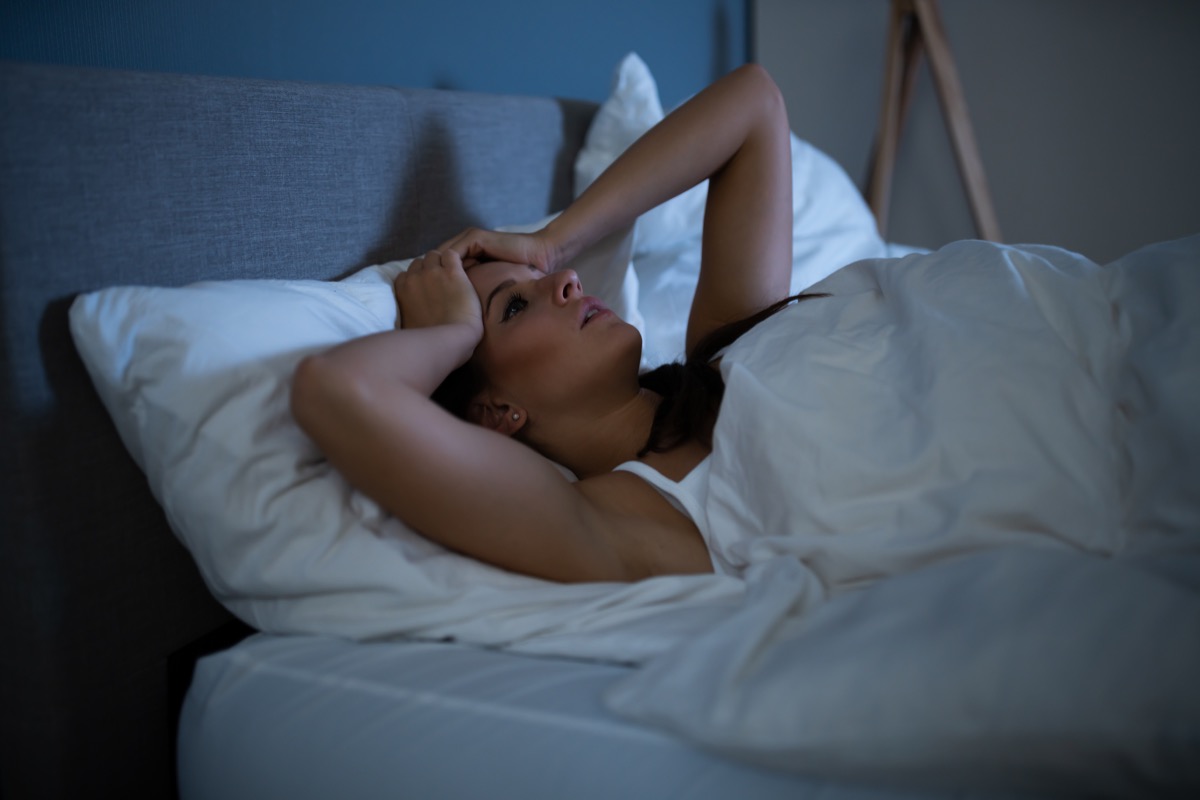
“A common trigger for nocturnal arousals is obstructive sleep apnea, when breathing stops and the arousal system ensures the activation of our body to change our sleep position and to reopen the upper airway,” explains Dominik Linz, Ph.D, an associate professor in the cardiology department at Maastricht University Medical Center (The Netherlands), in the study’s official release. “Another cause of arousals can be ‘noise pollution’ during the night by, for example, night-time aircraft noise.” And for some great advice for catching more Z’s, learn why This Easy Trick for “Falling Asleep in 5 Minutes” Is Going Viral.
How to Know if You’ve Experienced Unconscious Wakefulness
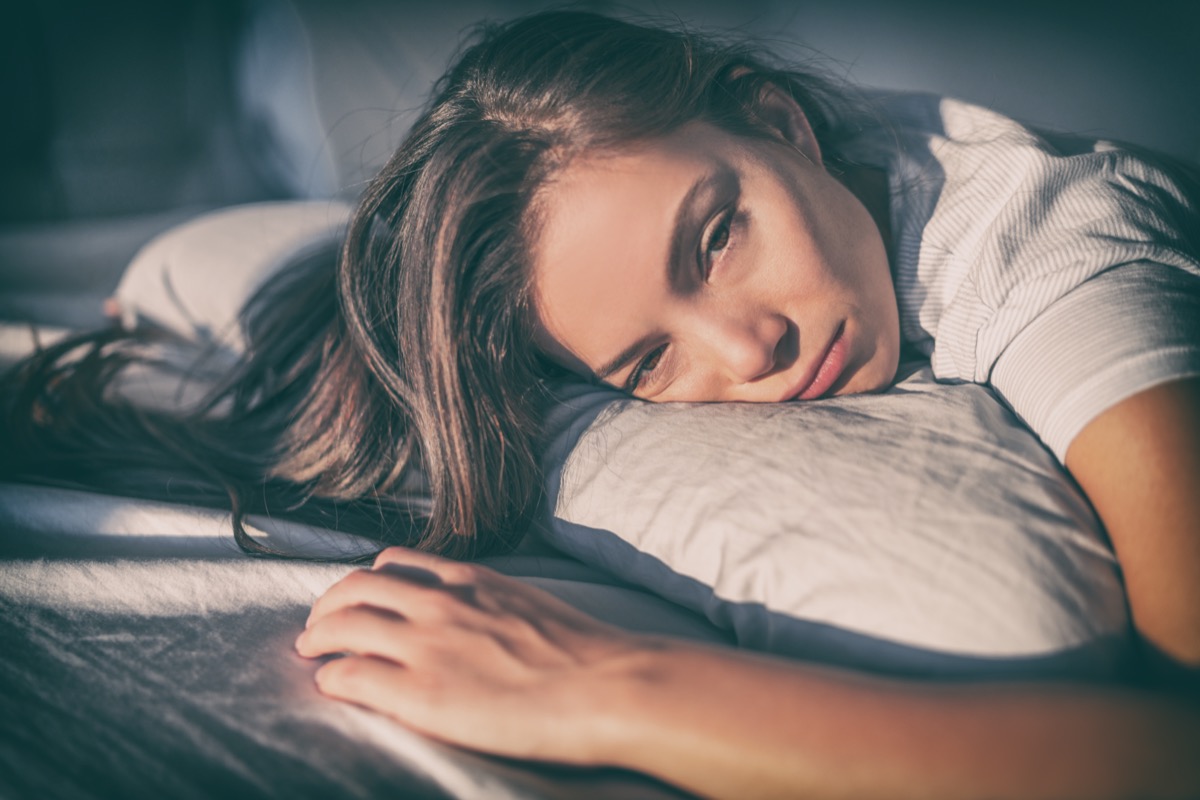
The surefire sign you’ve been disturbed at night? You’re simply tired the next day. “Depending on the strength of the arousal, a person might become consciously aware of the environment, but often that is not the case,” says Linz. “Typically, people will feel exhausted and tired in the morning because of their sleep fragmentation but will not be aware of the individual arousals.”
The Study Says It Affects Women More
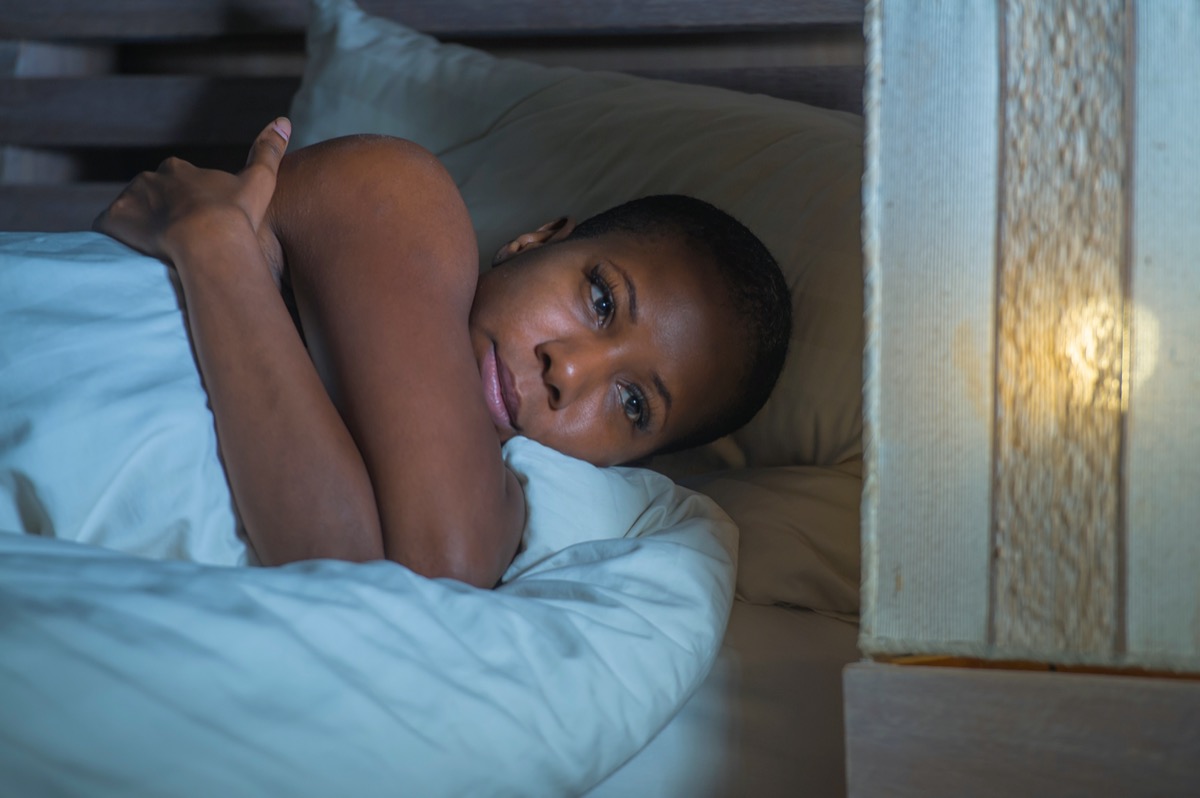
The study focused on roughly 8,000 participants of both genders, yet the researchers discovered that women are profoundly impacted by the effects of unconscious wakefulness. Ultimately, the study “found that women who experienced unconscious wakefulness most often and for longer periods of time had nearly double the risk of dying from cardiovascular disease during an average of between 6 and 11 years’ follow-up, when compared to the risk in general female population.”
The link between unconscious wakefulness and early death was “less clear in men,” says the study. And for more healthy living advice, see why This Crazy-Popular Walking Workout Totally Works, Say Fitness Experts.
What To Do About It
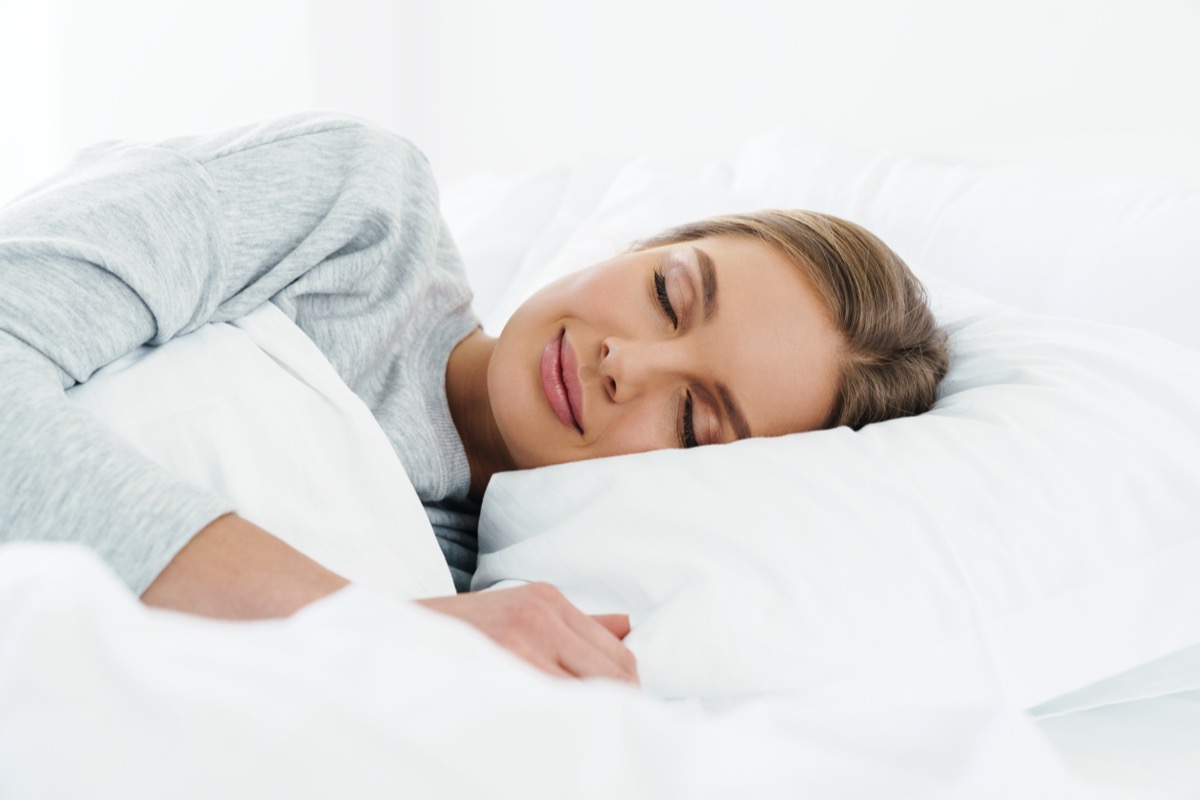
If you don’t suffer from sleep apnea, this is the latest study that reveals the importance of trying to maintain any semblance of quiet that you can during the night. Research published by the World Health Organization linked noise to not only one in 50 heart attacks in Europe but also our collective sleep on a massive scale. “Sleep disturbance accounts for more than half of the overall noise effect—and more if you ignore annoyance,” Mathias Basner, MD, Ph.D, MSC, a professor of sleep and chronobiology at the University of Pennsylvania School of Medicine, remarked of the study to Scientific American. “Impact of noise on sleep disturbance is regarded as one of the most detrimental environmental effects of noise.”
Noise machines are helpful, but it’s important that you opt for “pink noise” and not “white noise.” The latter is a static noise, while the former is more like rain, the beach, or a heart beat. In fact, a 2017 study published in the journal Frontiers in Human Neuroscience found that pink noise is especially effective at bolstering deep sleep among older volunteers and actually improves memory function.
Of course, earplugs are a great solution, as well. And for more ways to get restful slumber, make sure you Never Do This If You Want Good Sleep, Say Health Experts.
